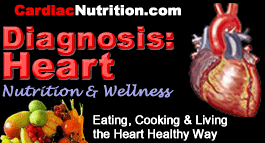Nutrition Information

 Blood
by Pierre S. Aoukar, MD and Hratch L. Karmanoukian, MD
Posted: February 27
This is not as straight forward as it may appear. Blood carries nutrients and most importantly, oxygen, to your entire body, including your heart, which has its own circulation, the coronary arteries—which, by the way, fill during diastole, or the resting phase of the cardiac cycle. If there isn’t enough blood circulating in your body because you’re dehydrated, or you’re bleeding, your heart doesn’t get enough blood and begins to work harder not only to deliver blood to vital organs, but to feed itself as well. Evidently, the harder your heart works, the less blood it gives to its own circulation and this becomes a viscous cycle, until it can no longer pump and you go into hypovolumic shock (not enough blood to supply the heart). To prepare yourself best for such a situation, drink at least 8 full glasses (we recommend over 12 oz. each) of water each day, more when you exercise, put on clean underwear when you leave the house and wear your seatbelt. The leading cause of traumatic death is by motor vehicle accident and usually, you bleed to death.
Reference:
Blood, Excerpt from the book: Everything Good For The Heart: The A to Z Guide, Aoukar PS and Karamanoukian HL. Magalhaes Scientific Press |
